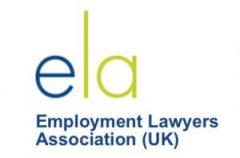What is the Probate Process?
When someone dies, probate is the legal and financial process of proving that there is a valid Will and that the one presented is the last Will of the deceased, confirming who has the authority to administer the estate and then dealing with the deceased person’s property, money and possessions in accordance with that Will.
Administration of an estate will often break down into four stages, some of which may overlap:
- Grant of Probate/Grant of Letters of administration – The process from the death of an individual up to the application for a grant of probate or letters of administration (see below), will involve establishing details of the assets of their estate and obtaining valuations of those assets, completing an inheritance tax return where appropriate and paying any inheritance tax that may be due on the estate before the application for the grant of probate or letters of administration may be made.
- Gathering the assets – Registering the grant once it has been issued by the Court with the various asset holders and cashing in the assets of the estate and gathering them together; bank accounts, shareholdings and any property to be sold.
- Tax and Administration – The personal representatives will need to pay the debts of the estate and deal with various complex administrative matters, in particular liaising with HMRC in relation to tax affairs.
- Winding up and distribution – Once all of the assets of the estate have been gathered and the liabilities and tax affairs resolved then the personal representatives can wind up and distribute the estate to the beneficiaries. To do this they will need to prepare the estate accounts showing the assets and how they have been dealt with, ready for distribution.
The administration of the estate can be a complex and time-consuming process, with a significant level of risk attached. An executor who gets it wrong may find themselves having to pay out of their own pocket to rectify mistakes and/or recompense beneficiaries or HMRC. It requires having details of everything the deceased person owned and how much this is worth, as well as their outstanding debts.
If you have to administer an estate there are number of legal, tax, property and estate administration tasks that need to be carried out including:
- dealing with banks and financial institutions
- identifying and settling liabilities
- reporting the inheritance tax position of the estate
- applying for the grant of probate or grant of letters of administration
- finalising the income and capital gains tax position of the estate
- producing such documents as are required to mitigate or remove any capital gains tax liability where possible
- liaising with the beneficiaries to distribute and finalise the estate
- producing full estate amounts to ensure transparency in the administration
If you want to hand over the process to an experienced pair of hands, a solicitor can handle all of these steps and provide regular updates on progress, or they can provide you with just the assistance as and when required e.g. review the Will or estate at the outset, to identify who is going to complete each specific task and prepare a detailed case management plan to ensure that the full estate is administered correctly.
What about if someone dies without leaving a Will?
When someone dies without leaving a Will their estate is ‘intestate’ and you may require a legal document called a grant of letters of administration in order to deal with their estate. A grant of letters of administration is a legal document issued by the Court to prove who has legal authority to deal with the estate of the person who has passed away.
A solicitor can advise on the inheritance laws called the “rules of intestacy” which determine who is allowed to apply for the grant. These rules place the deceased’s relatives in order of priority and the person that is highest up on this list is the person that should make the application. A grant of letters of administration with Will annexed may be needed where there is a Will but the appointment of Executors has failed for some reason.
The Wills, Trusts & Estate Administration team at THP Solicitors can also help prepare and make the application to Court for a grant of letters of administration, complete the Inheritance tax returns and calculate any tax that needs to be paid to HMRC.
Deeds of variation
During an estate administration, the beneficiaries have an opportunity to benefit from inheritance tax planning themselves. Where their own estate already has an inheritance tax liability, they may choose to divert their new inheritance to their children or another beneficiary, thus avoiding a double inheritance tax liability. A solicitor can advise on the inheritance tax position and produce the necessary documentation to effect these changes. For a variation to be effective from a tax point of view, it must be completed within two years of death and so it is important to get advice at an early stage.
How we can help
The task of administering an estate after the death of a loved one can often feel overwhelming. If you decide to seek assistance with this process, our team at THP Solicitors has extensive experience of all sizes of estate and we would be happy to provide the support you require, such as applying for grant of letters of administration, which inheritance tax forms you will need to complete when liaising with HMRC or get an accurate value of the estate to establish if any inheritance tax is due. Where there is a Will, we can advise on the terms and validity of the Will and where there is no Will, we can explain the intestacy provisions so you can be sure you understand how the estate will be distributed.
Once we know more about the estate we can provide you with an accurate quotation based upon how many hours we believe it will take to finalise the matter, and the level of service that you require. We would normally invite you to a meeting where you can discuss any queries or concerns you have, chat through the details and also meet the person who you will be dealing with.
Because of the bespoke nature of estate administration, the easiest way to obtain details of both our costs and the services required would be to telephone a member of our team (details below) for an initial discussion on a no obligation basis.
For further information or legal advice, please contact our Wills, Trusts & Estate team on on 0118 975 6622 (Lower Earley office) or 01491 570900 (Henley-on-Thames office) or send us a confidential email to office@thpsolicitors.co.uk









